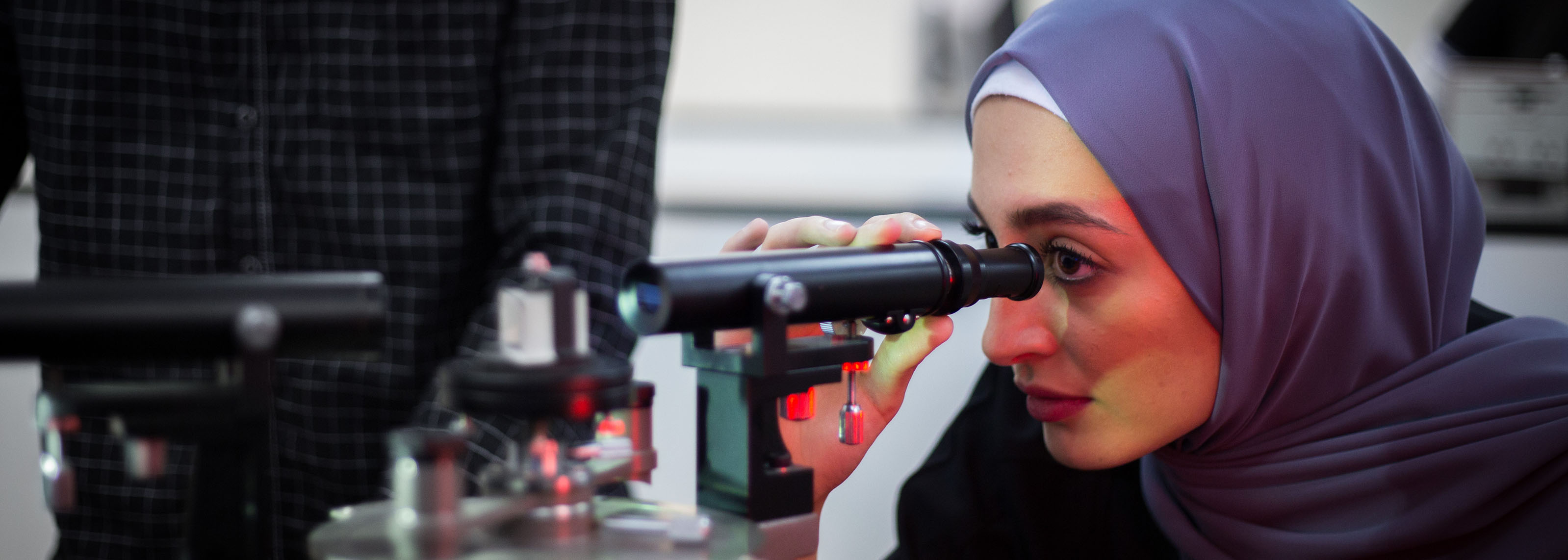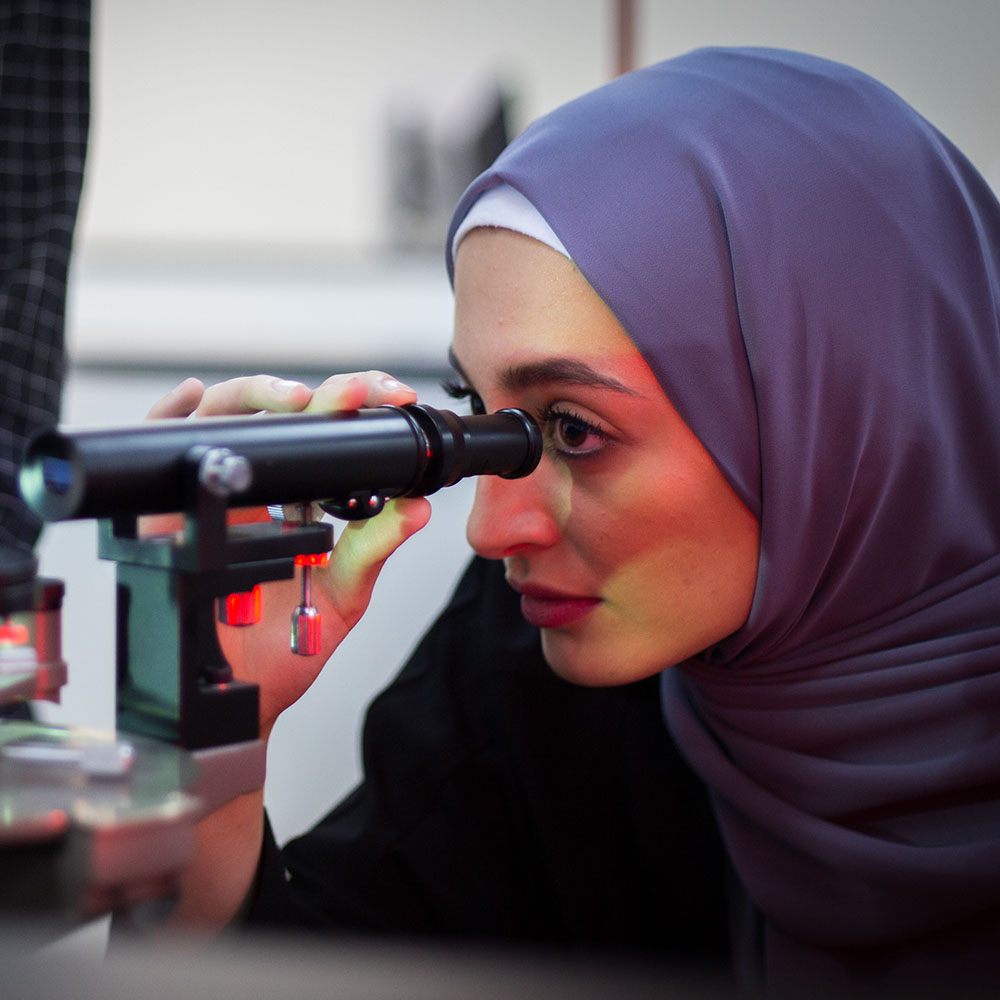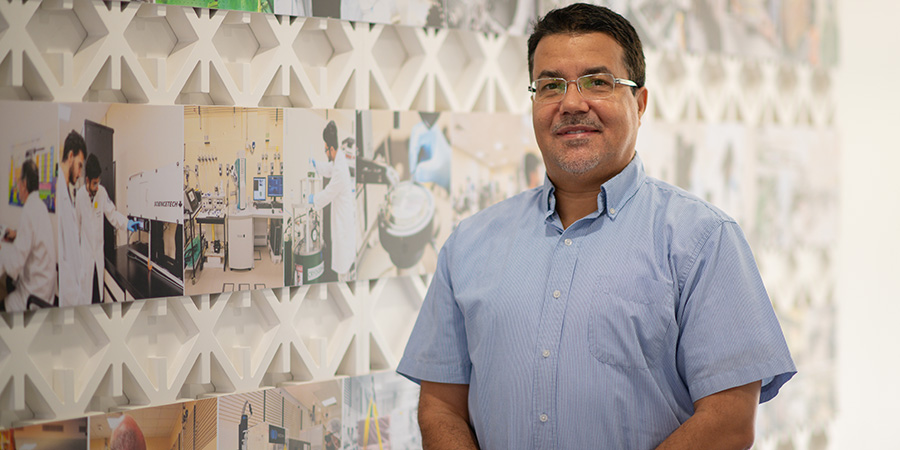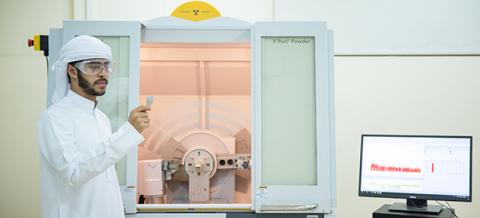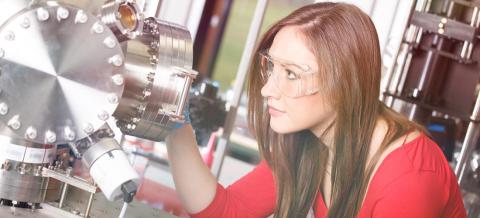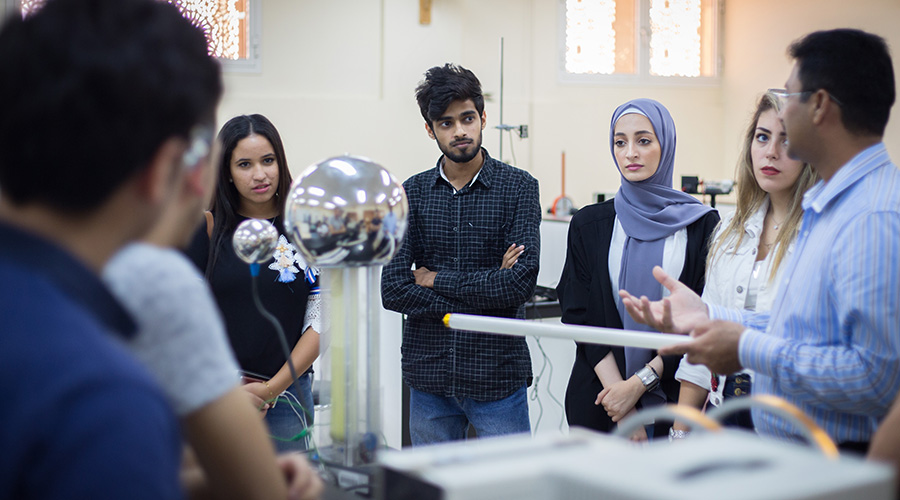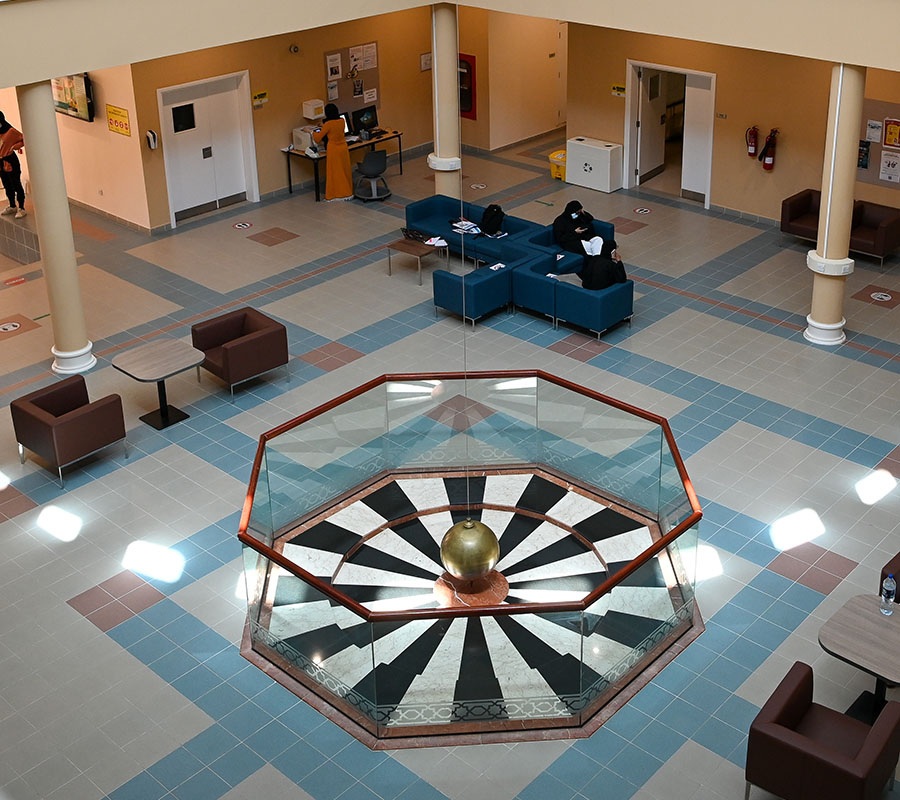The Department of Physics aligns seamlessly with industry and the visionary goals of the United Arab Emirates in several significant ways.
Head of Department
Faculty
- 1 of 5
- next ›
Why Study Physics?
The Department of Physics aligns seamlessly with industry and the visionary goals of the United Arab Emirates in several significant ways.
- Interdisciplinary Emphasis
One of the standout characteristics of our physics program is its interdisciplinary approach. This program doesn't confine itself solely to physics but also integrates knowledge from various fields like mathematics, natural sciences, engineering and liberal arts. This holistic education ensures that graduates are equipped with a well-rounded skill set, which is highly valuable in today's dynamic job market.
- Industry Relevance
The program is meticulously designed to keep pace with the ever-evolving demands of industry. By providing students with up-to-date knowledge of physics principles and their practical applications, we ensure that our graduates are not just well-versed in theory but also capable of directly applying their skills to real-world challenges.
- Research-Centric Learning
Our commitment to research-based learning is a hallmark of the program. We offer a conducive environment for students to acquire and analyze data, develop experimental approaches to physics, and practice the scientific research method. This not only enhances their problem-solving skills but also instills in them the ability to contribute meaningfully to scientific advancements.
- Faculty-Guided Undergraduate Research
We believe in hands-on learning, and to that end, we offer opportunities for student undergraduate research projects under the guidance of our experienced physics faculty. This hands-on experience prepares students for the rigors of research-based careers and fosters a deep understanding of the subject matter.
- Curriculum Adaptability
Our program maintains a dynamic curriculum that stays in sync with the evolving needs of the region and the global landscape. This adaptability ensures that our graduates are always well-prepared to tackle the emerging challenges and opportunities in the physics field.
- Lifelong Learning and Critical Thinking
Beyond academics, we emphasize the development of lifelong learners who can think critically and creatively. By integrating liberal studies, professional education, and co-curricular and extracurricular learning, we aim to produce graduates who are not just well-educated but also possess the ability to adapt, innovate, and excel in any career path they choose.
Facilities
Our well-equipped laboratories play an important role in providing students with unique opportunities to delve into the exciting fields of physics. We have advanced equipment for structural and electrical characterization that provides students essential resources to learn the proper use of state-of-the-art equipment, perform intricate data collection and analysis, and present interesting scientific results in the form of lab reports and papers.
Our facilities include:
- Basic and advanced physics labs, and materials science and advanced laser research labs
- State-of-the-art optics, atomic and molecular spectroscopy laboratories
- Advanced laser materials processing laboratories
- 3D printers used for quick prototyping
- Material characterizing instruments ( XRD, SEM, AFM, RAMAN)
Our laboratories feature the latest equipment, including:
- X'Pert3 Powder/ PANalytical
This system has on-board control electronics, compliance with the latest and most stringent X-ray and motion safety norms, advances in eco-friendliness and reliability. The system is capable of performing high-quality phase identification and quantification, residual stress analysis, grazing incidence diffraction, X-ray reflectometry and small-angle X-ray scattering characterizations.
- Four Probe Transport Measurement System
The labview operated homebuilt electrical transport system is formed of a Keithley 2182A precision Nano voltmeter and a 6221 Keithley source and measurement unit with basic temperature control option.
- Impedance Analyzer
Our laboratory is equipped with a Agilent E4990A impedance analyzer with capacitance and dielectric constant measurement tool kit. Equipment at this stage has a frequency range of 20Hz to 10MHz. The system is capable of performing AC resistance measurements: measurement parameters |Z|, |Y|, θ, R, X, G, B, L, C, D, Q, Complex Z, Complex Y, Vac, Iac, Vdc, Idc.
- Optical Rotation and Faraday Effect Apparatus
This experimental system is designed to observe the magneto-optic rotation effect of a material under test, understand the flow direction of a magnetic current versus the polarization rotation direction of a Faraday rotator, calculate the Verdet constant, and demonstrate optical communication using magneto-optic modulation technique.
- Fiber Optics Spectrometer (Flame)
FLAME–T–XR1–ES is a next generation miniature extended range with enhanced sensitivity spectrometer. It is fitted with DH-mini deuterium-tungsten halogen source, Toshiba TCD1304AP linear silicon CCD array, detection range 190 – 1100 nm, 3648 Pixels, 400 µm premium fiber, solarization-resistant, and Signal-to-noise ratio 300:1 (at full signal). It is used for teaching basic principles of spectroscopy as well as advanced research experiments. Currently the system is fully equipped for UV-VIS spectroscopy applications. The spectrometer has interchangeable slits to optimize the configuration for different sample applications.
- Geiger Muller Tube, Radiation Counter with LABLINK Software
Our lab is equipped with a teaching Nuclear Lab System. The system includes a G-M Tube with a mount and trays, a radiation counter with LABLINK software and a full set of radioactive sources and absorbers. The system empowers students to perform a wide range of experiments with alpha, beta and gamma radiation in the field of nuclear physics and engineering. The experiments include Plotting a Geiger Plateau, Resolving Time, Absorption of Radiation, Half-Life, Nuclear Detection, Inverse Square Law, Beta Decay, Nuclear Radiation Contamination, Thickness Gauging, and Depth Gauging. Examples of two experiments that can be carried out with our Nuclear Lab Systems are listed below.
- Exp. I: Determination the Range of Alpha and Beta Radiation
Measure the dependence of alpha and beta radiation intensity on distance traveled by the particles in various materials. Determine the range of the particles in those materials. Using an empirical range-energy relationship, determine the energy of alpha particles emitted by the 210Po source. Compare the obtained results with the known values given in literature or calculated from empirical formulas. Compare the observed regularities of alpha and beta particle absorption.
- Exp. II: Study of Statistics of Radioactivity and Half-life
A solid understanding of radiation statistics is important for anyone doing research in nuclear or particle physics. The statistics of radioactive processes are an integral component of error calculations. The radioactivity of a short-lived radionuclide is measured as a function of time and the half-life of the substance can be determined. The count rate obtained in any time interval will fluctuate from the average counting rate over a long period of time according to the laws of probability. A number of factors must be taken into account when analyzing counting experiments. Three of these factors are background, counter losses, and statistics.
Student Services
Physics Help Center
The Physics Help Center (PHC) offers free tutoring services to all AUS students. Our in-person physics tutoring sessions are free and are led by outstanding senior students who are hired to help their peers improve their problem-solving skills. These tutorials are available to all students taking PHY 001, PHY 101, and PHY 102 on a first-come, first-served basis.
Appointments are not required.
Timings:
We will start operating from the 4th week of classes until the 12th week, Monday to Thursday 09:30 p.m. to 4:00 p.m.
Location:
Room P212, Department of Physics
Services:
Individualized tutoring sessions for students enrolled in remedial and first-year science students
Contact
For more information about our department or programs, please contact us:
Department of Physics
College of Arts and Sciences
American University of Sharjah
P.O. Box 26666
Sharjah, UAE
Department Head
Dr. Said Sakhi
Tel +971 6 515 2508
[email protected]
Administrative Assistant
Noor Abdulmaati
Tel +971 6 515 2538
[email protected]
For admission information, please visit https://infodesk.aus.edu, sign up and post your query.

